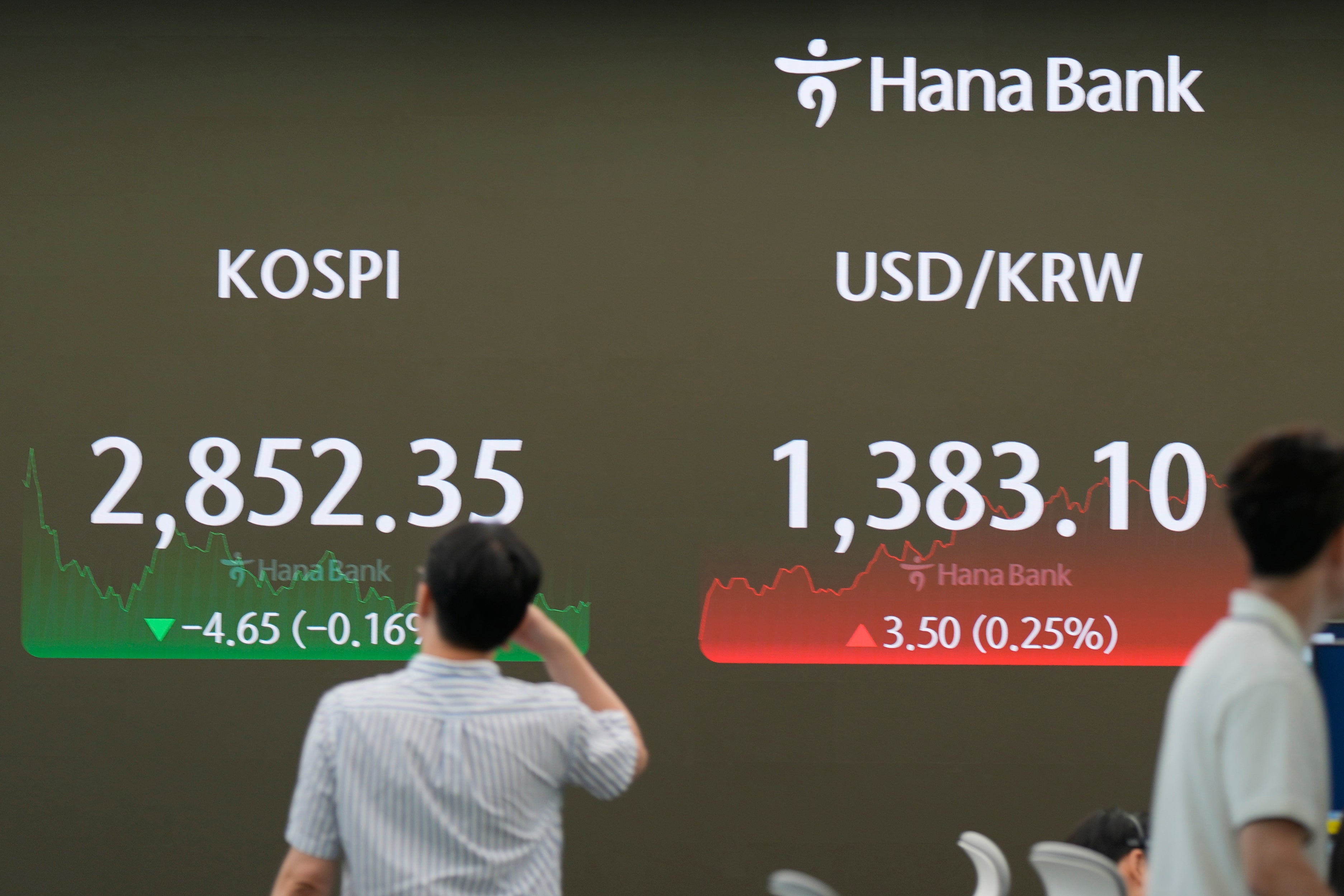Shares across Asia slumped on Monday after president Donald Trump threatened a global trade war with a tariffs for all nations.
Stocks tumbled from Japan to Hong Kong, with the Nikkei 225 down by 4 per cent, falling to its lowest level in over six months, and the Hang Seng in Hong Kong sinking by 1.3 per cent.
China's Shanghai Composite index edged down by 0.5 per cent, and South Korea’s Kospi saw a steep decline of 2.6 per cent.
Elsewhere in the region, Australia’s S&P/ASX 200 sank 1.6 per cent, while Taiwan’s Taiex suffered a significant 3.4 per cent loss.
The shock was felt across markets with the US president set to impose a barrage of tariffs on all goods from overseas from Wednesday – a day he has dubbed America's "Liberation Day".
Mr Trump has suggested that the tariffs will apply to all nations and not just a select group of 10 to 15 countries that he has accused of enjoying the widest trade imbalances with America.

Mr Trump has already imposed tariffs on aluminium, steel and automobiles from neighbouring countries, alongside heightened duties on all imports from China, since he has returned to office.
Asked about the scope of Wednesday’s tariffs, Mr Trump told reporters on board Air Force One on Sunday: “You'd start with all countries. Essentially all of the countries that we're talking about.”
Mr Trump has consistently claimed that the US is being treated unfairly on trade and sees tariffs as the most effective solution. A tariff is a government tax on imported goods, charged to the company that is bringing the items into the US. Companies would typically then pass on this additional cost to American consumers.
However, he has repeatedly postponed or scaled back his tariff proposals. His approach has unsettled investors, triggering significant declines in US stock markets, and has faced resistance from both businesses and customers.
The impact of Sunday’s remarks was also felt on American stocks, with S&P 500 futures falling 1.9 per cent and Nasdaq 100 futures slumping 2.7 per cent.
Analysts have warned that escalating tariffs may cause US households and businesses to freeze their spending and increase inflation. Even if the tariffs end up being less painful than feared, all the uncertainty may filter into changed behaviours that hurt the economy.
The US economy and jobs market have been holding up so far, but if they were to weaken while inflation stays high, it would produce a worst-case scenario called “stagflation”.
The oil market also took a hit after Mr Trump threatened to impose “secondary tariffs” on Russian oil – one of the biggest crude suppliers in the world – if Vladimir Putin continues to delay a ceasefire in Ukraine.
Such tariffs would significantly impact India and China, the two countries which have emerged as the largest buyers of Russian oil since the start of Mr Putin’s invasion of Ukraine, and have a knock-on effect on global oil prices.
‘Inhumane’ Myanmar military continues airstrikes after devastating earthquake
South Korea say deadly wildfires started by man performing graveside ritual
China claims discovery of yet another record-smashing gold deposit
What you need to know about the deadly earthquake that hit Myanmar
Survivors pulled from rubble 60 hours after Myanmar earthquake
Woman gives birth to baby girl as hospital was evacuated during Myanmar earthquake







